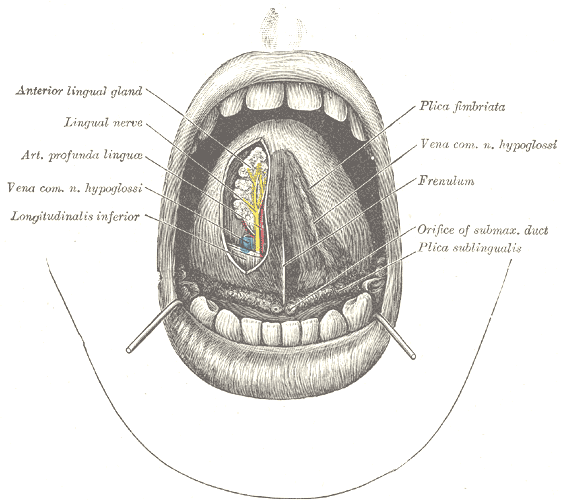From trouble breastfeeding to stunted language development to receding gums, tongue ties and lip ties can cause a number of problems in children and adults, but sometimes are completely harmless. How can you tell the difference?
 If you feel in your own mouth, there are tissues that connect your upper and lower lip to your gums, and that connect your tongue to your jaw. These are called frenulum, (labial frenulum for your lips, and lingual frenulum for your tongue) and if they grow too long, too short, or too thick, can have many repercussions down the line. They are colloquially called “tongue ties” or “lip ties” because they limit the mobility.
If you feel in your own mouth, there are tissues that connect your upper and lower lip to your gums, and that connect your tongue to your jaw. These are called frenulum, (labial frenulum for your lips, and lingual frenulum for your tongue) and if they grow too long, too short, or too thick, can have many repercussions down the line. They are colloquially called “tongue ties” or “lip ties” because they limit the mobility.
In newborns, these can pull the tongue tight to the bottom of the mouth like an anchor, or pull the lips against the gums so tightly that they can’t achieve the “fish lips” that are most effective in breastfeeding. This can cause nipple pain, blocked milk ducts, and more issues in the mother, and can prevent the baby from getting proper nutrition.
In younger children, this can cause issues with brushing the teeth, and teeth can grow in around the tissue, causing a gap in baby teeth and even adult teeth that will need braces to correct, and can cause speech disorders that may last a lifetime.
In older children and adults, this can complicate social situations like kissing, eating in public, and keeping one’s tongue or lips clean with an inability to move the tongue with the agility of an average person, and can cause prematurely receding gumlines. It can also continue to cause oral hygiene issues as it can make parts of the mouth difficult or painful to reach.
There is a lot of debate on the best time to surgically correct or even if you should surgically correct this at all. There are very few urgent medical reasons to either cut the frenulum to create more give in the tissue, (which is called a frenotomy) or to remove it altogether (called a frenectomy) to prevent it healing back to where it was in the beginning. Because there are few urgent medical reasons, most doctors, dentists, and oral surgeons take a “wait and see” approach. Even though it is a fairly quick and non-invasive surgery, it is still a surgery, and no one wants to have an unneeded surgery that may prove to be less of a problem in time. Many children see a receding in the frenulum naturally between six month of age and six years of age.
There is also some evidence of children with a very tight frenulum actually injuring it in play and tearing it in the same way a doctor or oral surgeon would cut it, so sometimes the problem can remedy itself.
However, if your baby is unable to breastfeed properly, is having speaking difficulty, or is experiencing dental issues or pain due to a frenulum, or you know you have a frenulum that is particularly tight as an adult and are concerned about receding gums, you should consult an oral surgeon or ENT doctor.
